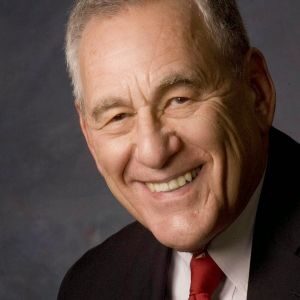To listen to talk about the world’s energy future, you might think that wind, solar and other renewable resources are the wave of the future. A quarter century from now, green power would have replaced traditional fuels for electric generators.
Not so, says the U.S. Department of Energy in its just-published annual International Energy Outlook. The report comes from the impartial Energy Information Administration, which is distinct from the promotion and regulatory roles of DOE.
While the use of renewables will increase at a faster rate than other resources, the world power supply in 2035, including in the United States, will still depend mainly on today’s principal fuels – coal and natural gas.
Wind-powered generating capacity will have an impressive annual rate of increase worldwide, but it starts from a low base, so it will end up supplying less than five percent of total U.S. electric generation capacity. And we get less power out of wind generators than we get from fossil-fuel generators, because of the uncertainty of their output as the wind blows.
Among the world’s green power resources, wind is now a distant second to hydro power and, despite its gains, will remain there. Hydro capacity is expected to grow by 2.8 percent annually in China, though only by a tiny amount in the U.S., despite considerable potential. Concerns about the environment and fish passage here have taken more hydro development off the table, while in most of the world it remains the favorite renewable.
Federal and state governments have been devoting significant sums to the development of wind power. As a result, the rate of growth of this resource has exploded over the past few years. Now tax breaks and subsidies are fading, and the forecast is for much less growth in the United States, though it will score gains elsewhere.
Maine may have cornered a niche position in developing renewables. It is playing a big role in studying off-shore wind power, which could be an economic plus for a small state. But, in the grand scheme of things, this added supply would amount to relatively little.
Even less significant than wind is solar power. Yet, with a $535 million loan guarantee, the federal government generously supported Solyndra, a poorly planned solar manufacturer that has filed for bankruptcy.
Concerns about the environmental effects of carbon fuels and dependence on countries that could use their oil for political purposes encourage governments to develop local, renewable energy sources. The claim that Maine could be the Saudi Arabia of wind, implying there is so much wind power potential here that it could displace one of this country’s major suppliers, is a somewhat fanciful expression of the view that we can become energy independent.
If anything, the United States is the Saudi Arabia of coal. Growth in its use for power generation in this country will be small compared with China, because of substantial concerns about its impacts on both land and air quality. There may be talk about “clean coal,” but there has been little measurable progress toward achieving it.
Instead of billions for wind and solar projects, government could do what the private sector has not done: clean up coal use and make coal mine safety a reality. A national coal policy could designate where and how coal is to be taken from the ground as well as create tough land restoration requirements. Safety standards and inspections could be greatly increased. Such measures would make coal-fired power more expensive. But the effort is likely to be more cost-effective than the support that has gone to wind power, which also raises rates.
Regardless of pro-green power initiatives, the use of coal-fired power is expected to grow as a share of total worldwide capacity at about the same rate as will the newer resources. But it is expected to decline as a share of total supply in the United States. Oil use for power production will fall worldwide, while nuclear power is forecast to grow considerably, though not much in this country.
Coal will remain king in the world, though in the United States it will continue to be second to natural gas. Though natural gas extraction poses new environmental problems, its economics work so well and its political vulnerability is so limited that it needs no government support to prosper. The energy market has increasingly turned to natural gas without the need for subsidies. This experience suggests that, despite recent proposals in Augusta, there is little need for government guarantees to back natural gas projects in Maine. If there are customers, new supplies and pipelines can be developed.
The DOE study does not look at efficiency and conservation, though they make more economic sense than promoting renewables or any other source of supply. These areas are not politically attractive, though they could create jobs now and provide long-term payoffs consistent with our national energy policy goals.







